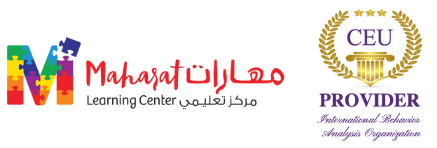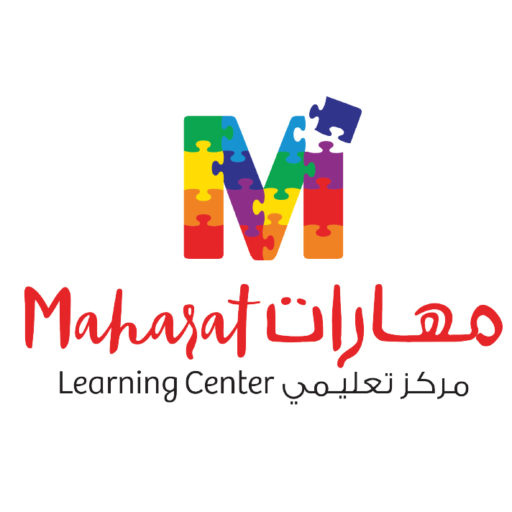
Professional Training
Our Training & Professional Development Center is committed to providing continuous learning opportunities for educators, clinicians, and professionals working with children of determination. Our workshops and training programs are delivered by experts who are well qualified and experienced in their respective disciplines.
Our Courses
Introduction to Applied Behavior Analysis (ABA)
Applied Behavior Analysis (ABA) provides a framework for individuals utilise scientific methods to research human behavior and the effect of environmental variables on behavior. While it is most typically used to treat Autism Spectrum Disorders (ASDs), it may be used to teach any functional skill, including school-related skills.
This course will teach participants the fundamentals of ABA and illustrate some of the various uses of ABA-based techniques. Anyone interested in learning more about the fundamentals of applied behavior analysis can benefit from this course. It will cover “Understanding Behavior Using the A-B-C Model” -Antecedents, Behaviors, and Consequences, Behavior Measurement (through Case Studies), and foundational concepts of reinforcement, prompting, and prompt fading.
Understanding & Managing Challenging Behaviors
Children with Autism Spectrum Disorders and other developmental disorders often display challenging behaviours that may cause harm to themselves and/or to others. Understanding the child’s behaviour is a vital step in encouraging positive behaviour. We can choose an appropriate strategy to handle the child’s behavior once we understand what is causing it. Participants in this session will learn effective approaches for developing a child’s skills, dealing with problematic behaviors, and incorporating successful behavior-change practices into the child’s daily routines. Our trainers will educate participants how to set rules and routines, praise good behavior, and use reward systems to help children acquire new skills and develop.
Registered Behavior Technician (RBT)
This course is designed to fulfill the 40-hour training requirement for the Registered Behavior Technician® (RBT®) credential, a paraprofessional certification in behavior analysis. Our Board Certified Behavior Analyst (BCBA) leads the course, which covers the fundamentals of Applied Behaviour Analysis (ABA).
This course is designed for teachers, parents, learning support assistants or behavior therapists who want to develop their competence to teach new skills and help clients who have challenging behaviours at home, school, or in the community.
Participants will receive a certificate of completion at end of the training to share with the Behavior Analyst Certification Board (BACB).
Note: Trainees must clear a criminal background check, a competency assessment, as well as pass the RBT examination in order to obtain the RBT credential.
Functional Behavior Assessment (FBAs) & Behavior Support Plans (BSPs)
This is an advanced course that teaches participants how to analyze and handle disruptive behaviors in the classroom. Today, there is good reason to believe that the success of classroom behavior interventions hinges on identifying the likely causes and purposes of problem behavior, as well as finding ways to teach and promote appropriate replacement behaviors that serve the same “functions” as the inappropriate behaviors.
In this course, participants will learn how to develop a FBA and BSP for any school setting. The trainer will discuss FBA concepts and requirements, how to select and define the target behavior, how to collect and analyze the the necessary data for patterns, identify antecedents and consequences, hypothesize function, distinguish the difference between a skill and a performance deficit, and decide on the next step in the process. Participants will also learn the basic concepts of a BSP, how to select suitable intervention techniques, and how to teach a replacement behavior, as well as consequence strategies, a crisis plan, and how to monitor the plan’s effectiveness.
Early Intervention Professional Development Program
The Early Intervention Professional Development Program has been developed to promote the inclusion of children of determination into mainstream schools. Our team of professionals are trained and qualified to provide teachers and schools with the tools and training necessary to ensure the learning objectives of children are met in an inclusive educational environment.
Our training program will enable school teachers or learning support assistants understand early intervention strategies, inclusive education, the theory and implementation of Applied Behaviour Analysis (ABA) and specific applications for children on the Autism Spectrum, children with other special educational (SEN) needs, and/or children presenting with challenging behaviour.
Incidental Teaching & Natural Environment Training (NET)
Incidental teaching and Natural Environment Training (NET) is utilizing the principles of Applied Behavior Analysis (ABA) to teach in the “real world.” Instructions are both driven by the individual’s motivation and carried out in the environments that closely resemble natural environments, with structure being provided in regard to the individual’s access to reinforcement. NET leads to skills acquired in 1:1 structured teaching being utilized in generalized settings, while also being to learn new skills in less structured environments.
Executive Functioning (EF) & Its Impact on Educational, Communication & Daily Living Skills
This course is designed to provide participants knowledge and learning about executive functions, which are a group of three key brain processes: inhibitory control, working memory, and cognitive flexibility. These three fundamental executive functions interact in various ways, yielding a group of other high-order skills known as executive function skills. These skills help us to plan, pay attention, recall instructions, predict consequences, juggle multiple activities, and successfully adapt to changing conditions. EF skills are essential for learning and development.
Participants will gain an understanding of executive functions, the neuroscience behind them, and the factors that influence our executive functioning. The trainer will discuss what executive function difficulties look like at school, in relationships, and how they affect behavior at home. Participants will also discover how parents and teachers should interact with their child/student to facilitate the development of these skills.
Theory of Mind (THOM) & Its Impact on Social Skills (Social Competence)
Theory of Mind is the ability to attribute independent mental states to self & others in order to understand, explain and predict behavior. It allows people to make assumptions about other people’s feelings, desires, thoughts, knowledge, intentions, etc. so they can properly respond and often predict others behavior. Individuals with Asperger Syndrome/High Functioning Autism (HFA) can encounter difficulty recognizing and processing the feelings of others. As a result of this, individuals may not realize if another person’s behaviors are intentional or unintentional. Failure to identify and/or treat delays in theory of mind will make it hard for individuals to establish and maintain meaningful relationships.
In this training, participants will learn the essentials to foster perspective taking abilities, which is a critical component for social language programming and intervention.
Introduction to Verbal Behavior / Applied Verbal Behavior (AVB)
Verbal Behaviour Therapy is based on theories of B.F. Skinner (1957) and uses the principles of ABA to teach communication skills. It is a method of teaching language that focuses on the idea that a meaning of a word is found in its function (reason). It capitalizes on the individual’s own motivation, teaching them to communicate their desires.
In this training, participants will learn how Verbal Behavior interventions can develop communication skills, including receptive and expressive language across the verbal operants of mand (requesting), tact (labeling), echoics (vocal imitation) and intraverbal / conversational skills.
Data Collection & Graphing
ABA interventions/programs are data based and research driven. Therefore, when conducting ABA interventions & programs, data is continuously collected on the targeted behaviours. This allows those running the programs to evaluate the efficacy of the teaching and treatment implementation on an on-going basis. This data could be the percentage of correct spellings in a test, or the number of requests made by a student to take a break from work. The types of data that can be collected are numerous but the purpose of collecting data is to allow those running the interventions to maintain direct and continuous contact with the behaviour under investigation. Regardless, of the specific target behaviours, specific data-collection procedures are utilized, including visual displays, such as, graphs or charts.
Participants will learn the appropriate data collecting techniques, as well as the dos and don’ts of data collection, during this course. Participants will also gain knowledge on how to convert collected data into understandable, structured, and insightful graphical representations that can be utilized to make data-driven decisions and update or rewrite programs depending on what the data tell us.
Toilet Training
It is often indicated that children with developmental disabilities generally show the same signs of ‘toileting readiness’ as that of typically developing children; however, these signs often appear when the child is older, and the training might take longer. Surprisingly, the actual steps for preparing the individual for toilet training are also similar for all children, with the exception that individuals with developmental disabilities might need alternative strategies adjusted to suit their needs and/or additional instruction. Regardless, it is necessary to recognize that toilet training is largely about cooperation, communication and working together with the individual being toilet trained.
In this training, participants will learn to identify signs the individual is ready for toilet training, discuss the preparation for toilet training and the various types of toilet training strategies and supplemental supports to facilitate success.
Principles of Feeding Therapy
The training utilizes the principles of Applied Behavior Analysis (ABA) to increase behaviors related to food acceptance and decrease behaviors related to food refusal. Feeding Therapy is used as an intervention to help children acquire the skills for successful eating. The training program will include:
- Introduction of basic behavioural principles
- Methods to evaluate and monitor feeding/mealtime behaviours
- Use of prompting to promote acceptance of new food and teach self-feeding skills
- Addressing noncompliance around mealtimes, and use of effective requests
- Strategies to promote generalization and maintenance of skills learned
Safe Physical Handling
This training will provide participants with the knowledge and skills required to successfully prevent, decrease, and manage challenging behaviors while maintaining the individual’s dignity and safety. We provide simple and effective strategies based on Applied Behavior Analysis (ABA) techniques for dealing with high-risk and harmful behaviour. We promote a reinforcement-based approach to safeguarding individuals while reducing or eliminating the use of restrictive methods like physical restraint.







